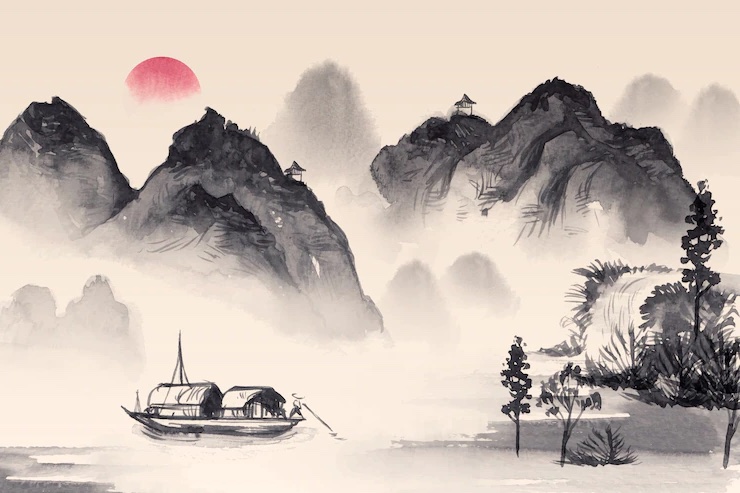
The Five Arts (中国五术) are a vital component of Chinese culture and tradition that have been passed down for generations. They have become an integral part of Chinese philosophy, education, and society, each with its unique focus and purpose. The Five Arts consist of Mountain (Shan 山), Medicine (Yi 医), Physiognomy (Xiang 相), Divination (Bu 卜), and Destiny (Ming 命). Through these disciplines, individuals can cultivate their knowledge and skills, both in practical and spiritual aspects, to achieve greater harmony and balance in their lives.
Mountain (山)
The practitioners of this discipline are primarily focused on cultivating their mental, spiritual, and physical well-being. In ancient times, these individuals would often isolate themselves and practice their craft in remote mountainous areas, where they were completely cut off from society. This is why the term “Mountain” was used to describe their reclusiveness and solitude. Some of the disciplines fall under this category are cultivation (修养), religion (宗教), martial arts (拳法), seclusion (闭关) etc.
Medical (医)
Chinese medical or commonly known as Traditional Chinese Medicine (TCM), is a holistic approach to healthcare that has been practiced for thousands of years in China. It is based on the concept that the body, mind, and spirit are interconnected and that maintaining a balance between these elements is essential to achieving optimal health. It has gained popularity around the world as a complementary or alternative therapy to conventional Western medicine. TCM uses a range of therapies, examples are herbalism (中药), acupuncture (针灸), massage and reflexology (推拿) etc.
Divination (卜)
Divination is an ancient practice that aims to gain insight into the future or unknown through supernatural means. It has played a significant role in traditional Chinese culture and is based on various principles, such as astrology, numerology, and other mystical practices. Diviners interpret signs and symbols from the natural world to understand the underlying patterns and provide guidance or solutions to problems. Some of the popular divination disciplines include Oracles (卜挂), Plum Blossom (梅花易数), Tai Yi (太乙), Qi Men Dun Jia (奇门遁甲), Da Liu Ren (大六壬) etc.
Destiny (命)
Destiny science, unlike divination, doesn’t predict the future (read here for more: Is Zi Wei Dou Shu (ZWDS) a good prediction tool?) but instead decodes a person’s life by interpreting their birth date, birth time, and gender classification. Some popular examples of destiny science in Chinese culture include Zi Wei Dou Shu (紫微斗数), Bazi (八字), Qi Zheng Si Yu (七政四余) etc
Physiognomy (相)
Physiognomy, also known as Xiang, is a practice that involves analyzing the relationships between a subject and their environment. When applied to a person, physiognomy focuses on interpreting their destiny through their physical appearances, including facial features and palm lines, in a practice commonly known as face reading or palmistry. When applied to a house, it refers to the balance and connectivity between the owner, the house orientation, and the surrounding environment, which is commonly known as Feng Shui.
To plot a free ZWDS Sihua Flying Stars chart, refer Sihua 18 Flying Stars chart
Zi Wei Dou Shu destiny reading: Ziwei consultation services
Zi Wei Dou Shu Sihua Flying Stars courses: Online 1×1 Practitioner course
